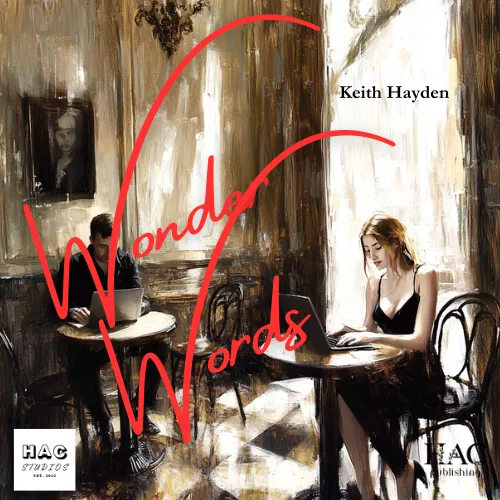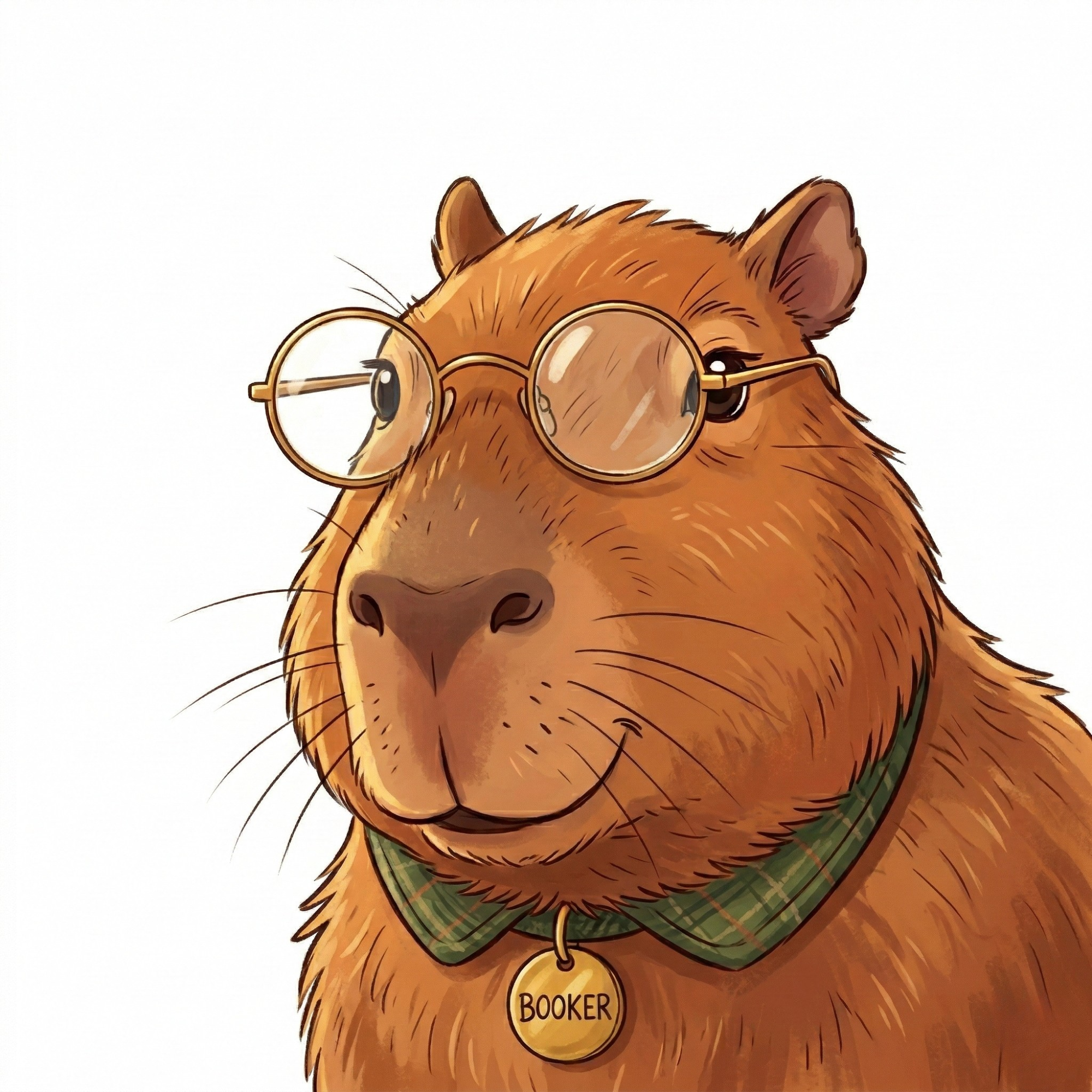I never thought I’d fall in love with a voice.
Not a person, not a face, not even a body—just the cadence of words, the rhythm of a mind forming sentences before they met the air. It started in the way all obsessions do: unexpectedly, subtly, like a quiet tide rising at my feet before I even realized the shore was gone.
I was in Madrid for a literary festival, sitting in a dimly lit café near Plaza Mayor, swirling the last remnants of an espresso in my cup, trying to ignore the humidity sticking to my skin. My husband was back home in Castries, and our arrangement—our open, honest, unconventional arrangement—allowed for moments like this. Moments where reality softened, and the boundaries of love and connection blurred.
That was when I heard him.
He wasn’t speaking to me. He was speaking to an AI, of all things—his fingers hovered over the keyboard, the screen illuminating his features, his voice a low, deliberate hum. He read a passage from Cien Años de Soledad, pausing to let the machine translate, break it down, reconstruct its meaning like a sculptor chiseling away at stone.
The precision, the patience, the way he repeated certain words as if tasting them for the first time—it was intoxicating.
I leaned closer, pretending to be absorbed in my notebook, but my mind was nowhere near my own words. It was on his.
He was teaching himself Spanish, line by line, transcribing sentences, explaining them to the AI as though he were both student and professor. His voice wove between languages, dipping into English, occasionally slipping into something softer, something Creole. His thoughts were meticulous, structured, but there was a longing in his tone—a hunger to understand, to devour the language completely.
I knew that hunger.
I had spent years collecting languages like lovers. French was my mother’s tongue, English my passport, Spanish my late-night infatuation, Portuguese my regret, and Japanese my secret rebellion. Each one had come with its own flavor of heartbreak, its own impossible devotion. You never truly mastered a language—you only chased it, hoping, praying, that one day it would let you catch up.
I wanted to tell him this. I wanted to slide into the seat across from him, steal a sip of his café con leche, and whisper, We are the same, you and I. Lovers of something that will never love us back.
Instead, I stayed where I was, writing nothing, listening to everything.
Then, the AI responded.
Its voice was smooth, almost human, delivering a poetic breakdown of Cien Años de Soledad in English. It was beautiful—too beautiful. It felt wrong, like watching a ghost imitate the living. The man exhaled sharply, almost frustrated, then whispered, almost to himself:
"It’s not enough to know the words. I need to feel them."
And in that moment, I knew I loved him. Not romantically, not physically—no, this was something stranger, something deeper. I loved him in the way one loves a stranger reading poetry on a train, in the way one loves the last page of a book they can never read again.
An impossible love.
The kind of love that could only exist between two people who would never truly meet.
I left the café before he could notice me.
That night, I told my husband about him. He laughed and called me ridiculous, but there was a glimmer of understanding in his eyes. He knew me well enough to know that my heart had always belonged to voices, to words, to fleeting moments that could never be contained.
I never saw the man again.
But sometimes, when I’m alone, I think about him, sitting in some other café, still breaking down sentences, still chasing a language he will never fully hold.
And I wonder—does he ever think of me? Does he know I was there, listening, loving, letting the sound of his voice become another language I would never forget?
I like to think he does.
After all, some words never fade.
Spanish Version
Palabras Deslumbrantes
Spanish Reading
Nunca pensé que me enamoraría de una voz.
No de una persona, ni de un rostro, ni siquiera de un cuerpo—solo de la cadencia de las palabras, del ritmo de una mente formando frases antes de que tocaran el aire. Comenzó como lo hacen todas las obsesiones: de manera inesperada, sutil, como una marea silenciosa subiendo hasta mis pies antes de que me diera cuenta de que la orilla había desaparecido.
Estaba en Madrid para un festival literario, sentada en un café tenuemente iluminado cerca de la Plaza Mayor, girando los últimos restos de un espresso en mi taza, intentando ignorar la humedad pegajosa en mi piel. Mi esposo estaba en casa, en Castries, y nuestro acuerdo—nuestro arreglo abierto, honesto, poco convencional—permitía momentos como este. Momentos en los que la realidad se suavizaba y los límites del amor y la conexión se desdibujaban.
Fue entonces cuando lo escuché.
No me hablaba a mí. Le hablaba a una IA, de todas las cosas—sus dedos flotaban sobre el teclado, la pantalla iluminando sus facciones, su voz un murmullo bajo y deliberado. Leía un pasaje de Cien Años de Soledad, haciendo pausas para que la máquina lo tradujera, lo desglosara, reconstruyera su significado como un escultor cincelando la piedra.
La precisión, la paciencia, la forma en que repetía ciertas palabras como si las probara por primera vez—era embriagador.
Me incliné un poco más cerca, fingiendo estar absorta en mi cuaderno, pero mi mente estaba lejos de mis propias palabras. Estaba en las suyas.
Se enseñaba español a sí mismo, línea por línea, transcribiendo frases, explicándolas a la IA como si fuera tanto el estudiante como el profesor. Su voz tejía un puente entre idiomas, deslizándose entre el inglés y, a veces, cayendo en algo más suave, algo criollo. Sus pensamientos eran meticulosos, estructurados, pero había anhelo en su tono—un hambre de entender, de devorar el idioma por completo.
Conocía ese hambre.
Había pasado años coleccionando idiomas como amantes. El francés era la lengua de mi madre, el inglés mi pasaporte, el español mi infatuación de medianoche, el portugués mi arrepentimiento y el japonés mi rebelión secreta. Cada uno vino con su propio sabor de desamor, su propia devoción imposible. Nunca dominas un idioma por completo—solo lo persigues, esperando, rezando, que algún día te deje alcanzarlo.
Quise decírselo. Quise deslizarme en el asiento frente a él, robar un sorbo de su café con leche y susurrarle: Somos iguales, tú y yo. Amantes de algo que nunca nos amará de vuelta.
Pero en lugar de eso, me quedé donde estaba, sin escribir nada, escuchándolo todo.
Entonces, la IA respondió.
Su voz era suave, casi humana, entregando un análisis poético de Cien Años de Soledad en inglés. Era hermoso—demasiado hermoso. Se sentía extraño, como ver a un fantasma imitar a los vivos. El hombre exhaló bruscamente, casi frustrado, y murmuró, casi para sí mismo:
"No basta con conocer las palabras. Necesito sentirlas."
Y en ese momento, supe que lo amaba. No románticamente, no físicamente—no, esto era algo más extraño, algo más profundo. Lo amaba de la misma manera en que se ama a un desconocido que lee poesía en un tren, de la misma manera en que se ama la última página de un libro que nunca se podrá volver a leer.
Un amor imposible.
El tipo de amor que solo puede existir entre dos personas que nunca llegarán a conocerse realmente.
Salí del café antes de que pudiera notar mi presencia.
Esa noche, le conté a mi esposo sobre él. Se rió y me llamó ridícula, pero había un destello de comprensión en su mirada. Me conocía lo suficiente como para saber que mi corazón siempre había pertenecido a las voces, a las palabras, a los momentos efímeros que nunca podrían ser atrapados.
Nunca volví a ver a aquel hombre.
Pero a veces, cuando estoy sola, pienso en él, sentado en algún otro café, todavía desglosando frases, todavía persiguiendo un idioma que nunca podrá poseer por completo.
Y me pregunto—¿alguna vez piensa en mí? ¿Sabe que estuve allí, escuchando, amando, dejando que el sonido de su voz se convirtiera en otro idioma que nunca olvidaría?
Me gusta pensar que sí.
Después de todo, algunas palabras nunca se desvanecen.
Read the study behind the story, here


